Story by Lawson Martin. Photos provided by To Be Like Me.
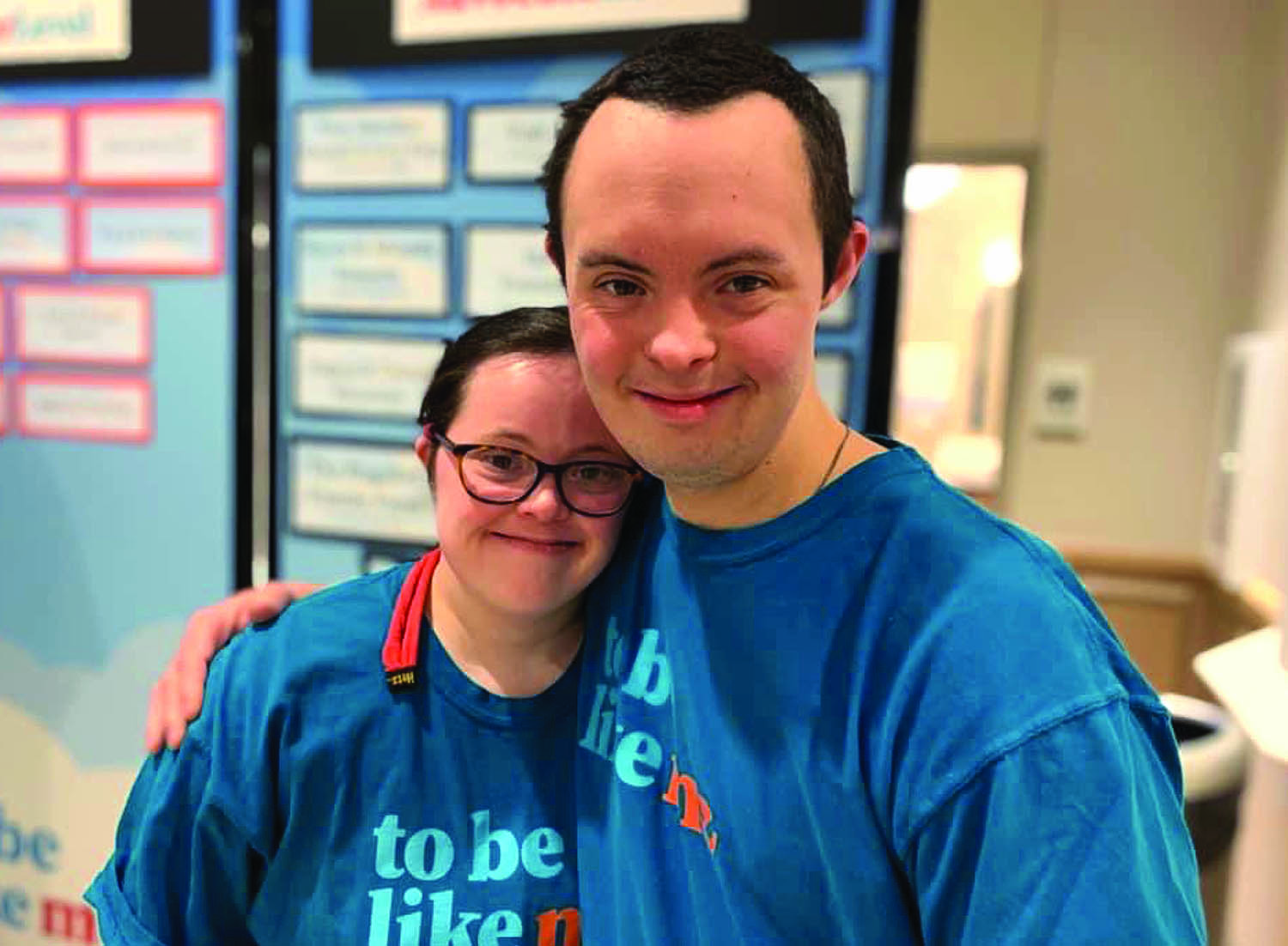
To Be Like Me is a nonprofit disability awareness program that started running field trip programs in 2019. To Be Like Me spreads awareness by offering in-person and online experiences hosted by individuals with disabilities. These individuals, called LEADers, get to share their stories and experiences with the public so that people can better understand what it’s like to live with a disability. Organizers say participants gain empathy and understanding through hearing personal stories from the LEADers. Participants also get to learn about the tools and technology the LEADers use daily to adapt to their environments.
The nonprofit hosts field trips for students, and Hollis Owens, founder and executive director of To Be Like Me, says To Be Like Me often targets children in the fourth and fifth grades.
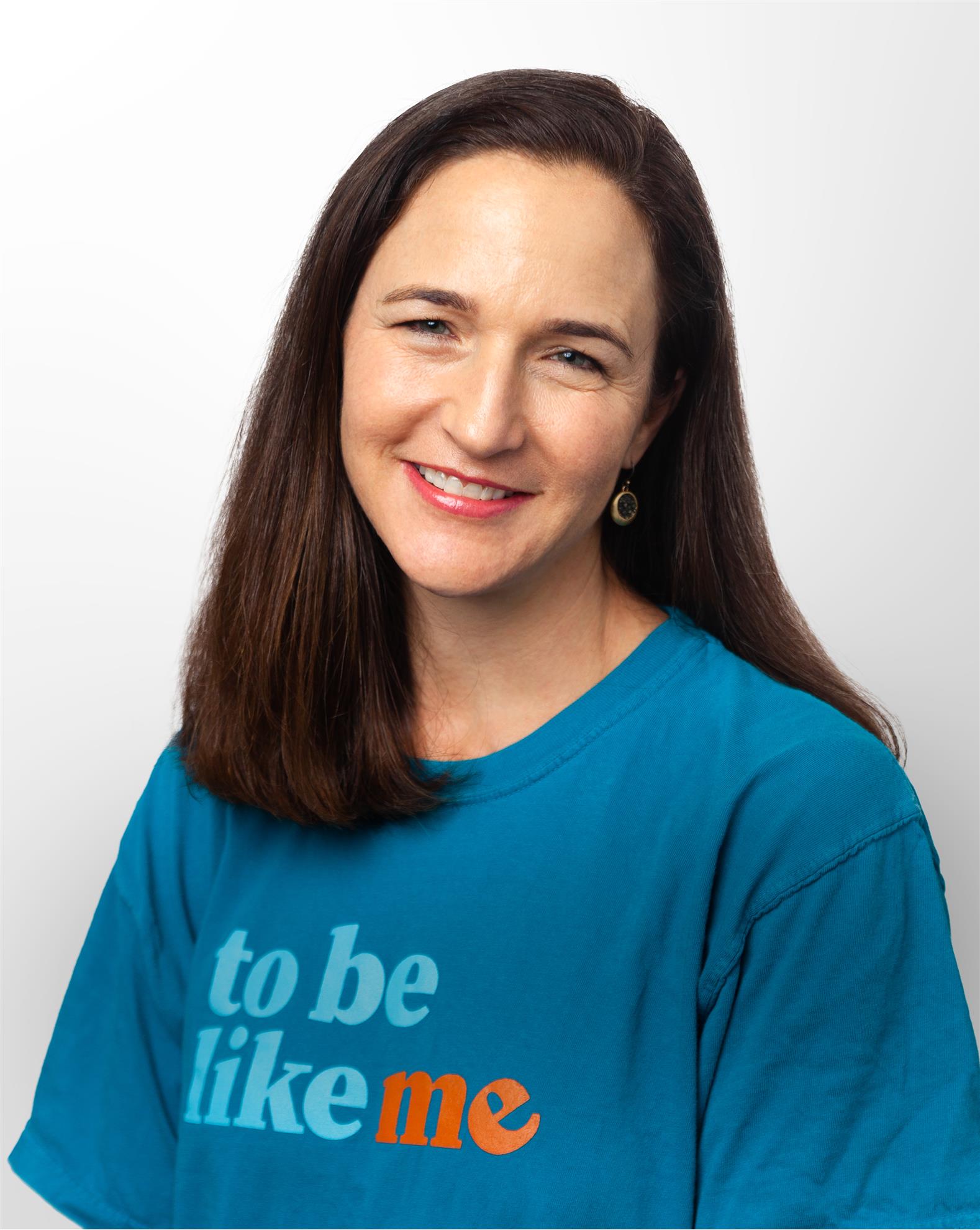
“We feel like that’s a great age for understanding empathy and awareness of others’ emotions and feelings,” Hollis says.
Before founding To Be Like Me, Hollis graduated from UT Southwestern Medical School in 2000 and worked as a physical therapist for 20 years. She’s worked primarily with children and said through that experience working with patients and their families, she heard more about the barriers that people with disabilities face in the community.
“I really wanted to be on the other end of that,” Hollis says. “I wanted to educate the community about disabilities and differences so that we could hopefully get beyond the barrier and change the future.”
Hollis recognized that the children she was working with were our society’s future lawmakers, business owners, teachers, and healthcare providers. She wanted to make a difference, which led her to found To Be Like Me.
To Be Like Me’s mission is to encourage empathy, kindness, and inclusion through disability awareness. The nonprofit has around 50 LEADers on their staff, all of whom live with various disabilities. To Be Like Me provides these individuals with meaningful employment and a platform for advocacy.
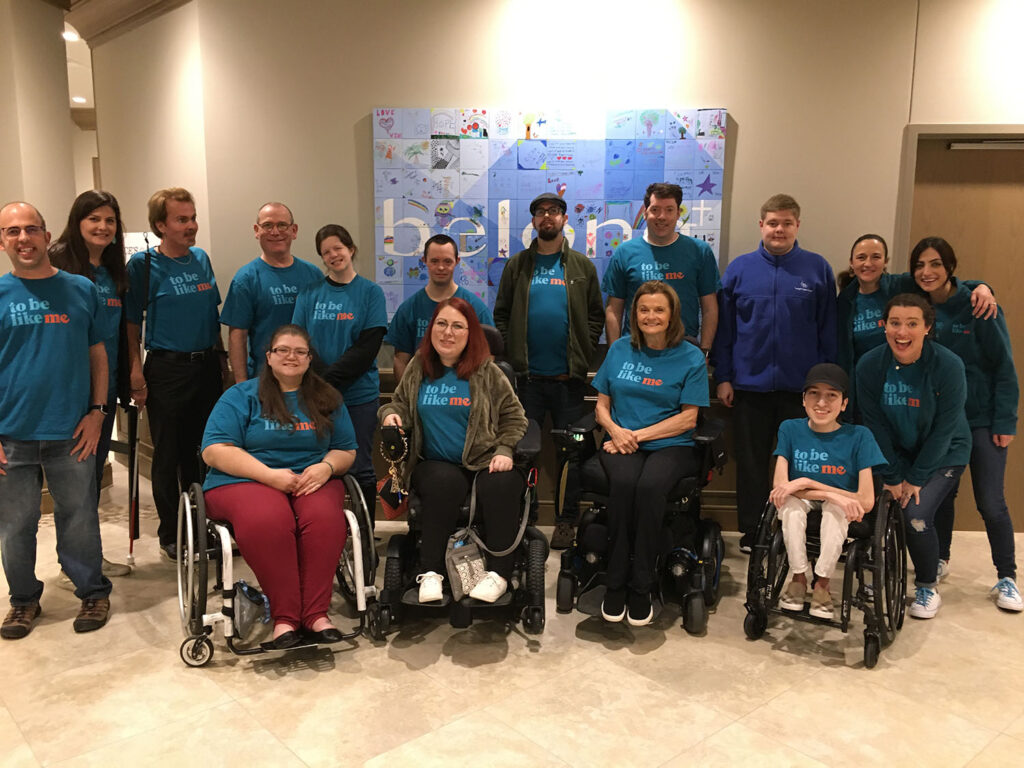
“Our LEADers enjoy the advocacy part, but they also enjoy knowing that what they are doing is truly making a difference,” Hollis says. “And so there’s a sense of purpose.”
According to Hollis, To Be Like Me not only helps students and teachers learn about the importance of empathy, kindness, and compassion, which creates a more inclusive environment, but it also empowers its LEADers to be great advocates.
To Be Like Me currently hosts field trips for students at the Tolleson Family Activity Center in Dallas on Wednesdays and at Network of Community Ministries in Richardson on Fridays.
During the field trip, students will come to one of the two locations for about two hours. During that time, they’ll rotate through five experiences in To Be Like Me’s program: FlyKind Airways, A Day in the Life, Assistive Technology, Classroom, and the Cafe.
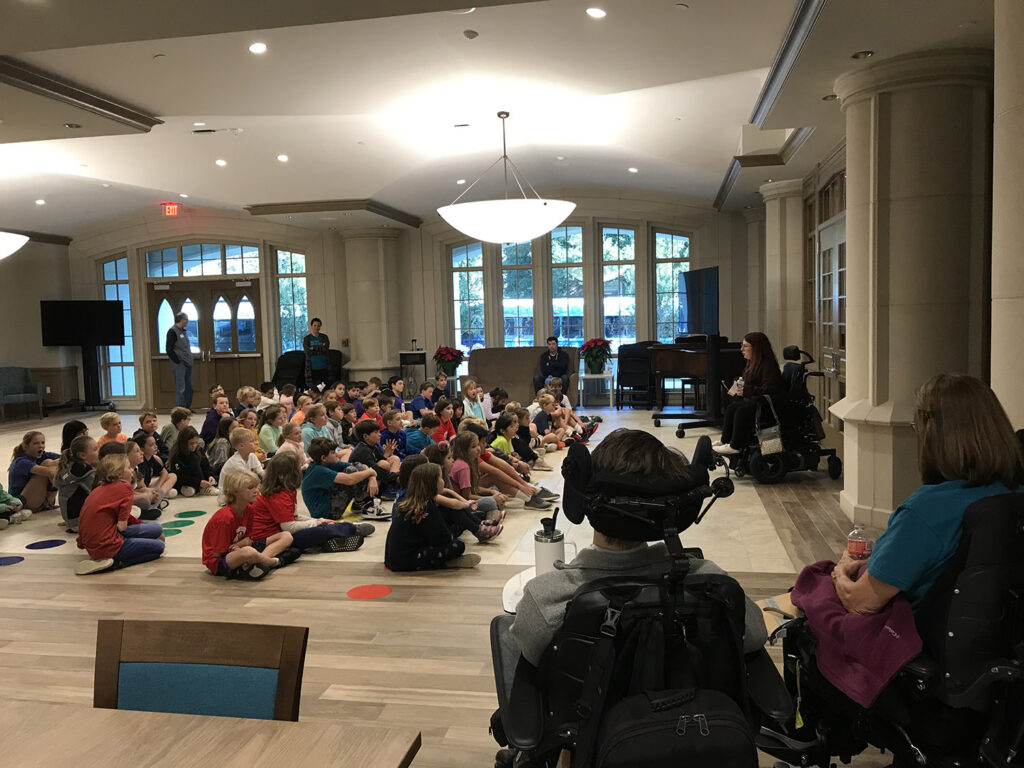
One of the experiences simulates what it would be like on an airplane for someone with sensory processing difficulties who quickly gets overstimulated. Bells are ringing, babies are crying, and a flight attendant gives gate-change information. The experience is overstimulating and overwhelming for the students, according to Hollis.
After all the noises go on for a while, the LEADers stop making noise, and the students sit in silence.
“Our leaders who are autistic stand up and say, ‘This is actually how I felt every day at school,'” says Hollis. “Sometimes kids who are in the experience raise their hand and say, ‘This is how I feel every day, too.'”
The LEADers will then discuss the experience and show tools to help students with sensory processing challenges, such as noise-canceling headphones and weighted lap pads. Children learn through the knowledge that very loud and overstimulating environments can be challenging for some people to learn in.
Students also learn about mental health and anxiety, medical devices people with disabilities use, and assistive technology through the experiences.
During a field trip program, To Be Like Me addresses more than 10 different disabilities, including autism, blind and visual impairments, cerebral palsy, limb differences, chromosome differences, mobility differences, mental health differences, deaf and hard of hearing, learning differences, and non-apparent disabilities.
The nonprofit aims to teach students to always be kind toward others because you never know what someone has been through or is currently going through. It may be as simple as interacting with someone who is different than you.
“If you met someone who is deaf and you don’t know sign language, you might think, ‘How would I interact with this person?'” Hollis says. “We answer those questions in our program and provide alternative ways to communicate. We have found that just by breaking that barrier, just by being able to open up and talk about some of these differences, allows for a deeper understanding and appreciation.”
Through the field trips to To Be Like Me, students realize they have more in common with people who have disabilities than they thought; they may not have ever interacted with that person.
“Many students say it’s their favorite field trip,” Hollis says.
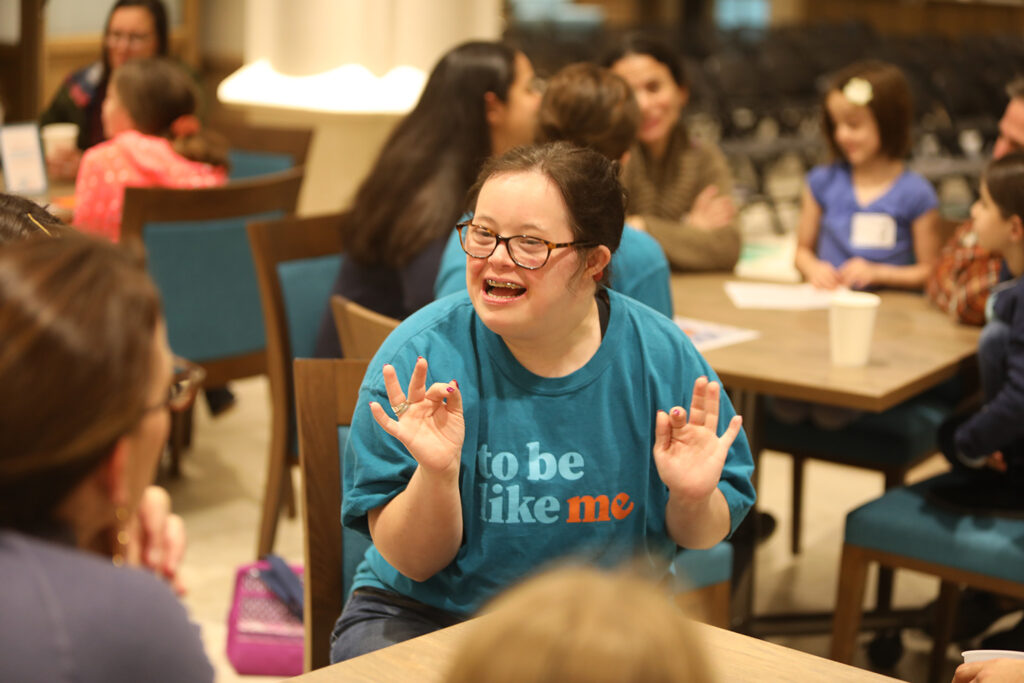
The nonprofit follows up with schools that have attended a field trip with To Be Like Me. Hollis says teachers often report their students’ behavior has improved when they return to the classroom after the field trip. Hollis believes this is because students are digesting what they have learned from the experience and have learned more about kindness and empathy towards others.
Only a few spots remain for field trip opportunities for the 2023-2024 school year, so if a teacher or administrator is looking to book a field trip for their students, they should visit To Be Like Me’s website as soon as possible.
Aside from field trips, To Be Like Me hosts quarterly community days on weekends, so families and community members can experience what students experience during their field trips. To Be Like Me will post their future community days on their website soon.
“Community days are great for families because it really helps open up the conversation, which is so important,” Hollis says. “It’s important to talk to your kids about differences.”
To Be Like Me is also seeking volunteers to assist during field trips. Anyone who is looking to volunteer should send an email to hello@tobelikeme.org.
Sign up with your email address to receive good stories, events, and volunteer opportunities in your inbox.